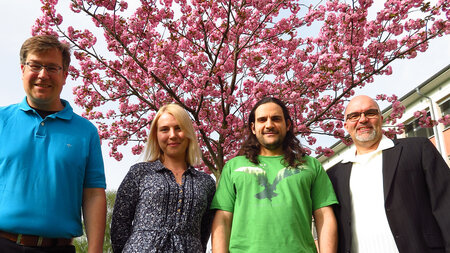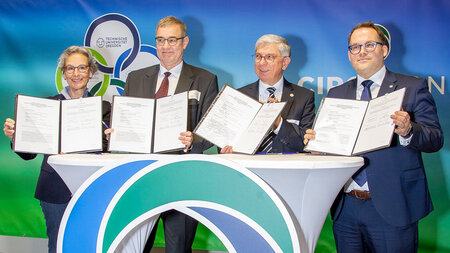Research Topics
Nanocomposite materials offer certain advantages over classical inorganic materials such as easy processing and nearly unlimited design of components. Additionally, typical included nano effects (e. g. quantum confinement) enhance the system performance substantially or provide completely new functionalities. A big challenge is to bring nanoparticles, nanorods or nanowires in contact to the micro and macro world. To overcome these difficulties, we favor different approaches such as the use of special conditioned composits (interfaces, orientation of inclusions) or self-assembling technologies. Lab-on-chip technologies, i.e. the realization of whole laboratory scale analytical processes on chip-scale devices, promise a giant leap in the quality and availability of health services for the public. Challenges for the development of such smart systems are the integration of all necessary components like fluid transport, temperature control, optical/electrical readout and data interpretation and management. Microfluidics, enabling the handling of small fluid volumes in the μl- and nl-range (less than one drop) is one of the key elements on the way to miniaturization. The decrease of sample volume leads also to a decrease in the use of pricy reagents and thus in the reduction of the overall cost per test. Typical fields of application for such smart systems are the direct detection of pathogens in various scenarios (bedside testing, food testing,…) as well as the detection of pathological states.
In current projects, humidity and magnetic positioning sensors are being developed by means of nanocomposites. First results look very promising and it seems that the big advantage of composites, namely the separate conditioning of inorganic (nano) inclusions and the organic matrix, lead to cost efficient sensitive sensors with simultaneously high-reliability and sensor lifetime.
Research topics of the Honorary Professorship Opto Electronic Systems are:





